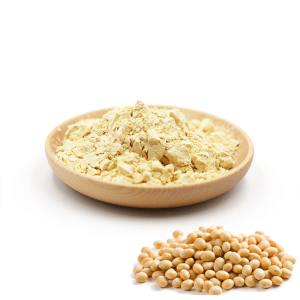
# Soy Fiber: A Sustainable and Nutritious Dietary Supplement
## Introduction to Soy Fiber
Soy fiber is a plant-based dietary fiber derived from soybeans, a versatile legume that has been a staple in many cultures for centuries. As a byproduct of soy protein and oil production, soy fiber is gaining recognition for its nutritional benefits and sustainability. This natural ingredient is becoming increasingly popular among health-conscious consumers and those seeking eco-friendly food options.
## Nutritional Profile of Soy Fiber
Soy fiber is packed with essential nutrients that contribute to overall health:
– High in dietary fiber (both soluble and insoluble)
– Contains plant-based protein
– Rich in vitamins and minerals
– Low in fat and calories
– Free from cholesterol
The combination of these nutrients makes soy fiber an excellent addition to a balanced diet, particularly for those looking to increase their fiber intake without consuming excessive calories.
## Health Benefits of Soy Fiber
### Digestive Health
The insoluble fiber in soy fiber adds bulk to stool and promotes regular bowel movements, helping to prevent constipation and maintain a healthy digestive system. Soluble fiber, on the other hand, acts as a prebiotic, feeding the beneficial bacteria in your gut.
### Heart Health
Regular consumption of soy fiber has been linked to improved cardiovascular health. It helps lower LDL (bad) cholesterol levels while maintaining HDL (good) cholesterol, reducing the risk of heart disease.
### Blood Sugar Control
Soy fiber slows down the absorption of sugar in the bloodstream, helping to maintain stable blood glucose levels. This makes it particularly beneficial for individuals with diabetes or those at risk of developing the condition.
### Weight Management
The high fiber content in soy fiber promotes feelings of fullness, which can help reduce overall calorie intake and support weight management efforts.
## Sustainability Advantages
Soy fiber offers significant environmental benefits:
– Utilizes byproducts from soy processing, reducing food waste
– Requires less water and land compared to animal-based protein sources
– Has a lower carbon footprint than many other protein sources
– Supports sustainable agricultural practices when sourced responsibly
## How to Incorporate Soy Fiber into Your Diet
Adding soy fiber to your daily meals is simple and versatile:
– Mix into smoothies or protein shakes
– Add to baked goods like breads and muffins
– Use as a thickener in soups and sauces
– Incorporate into breakfast cereals or oatmeal
– Blend into homemade energy bars or protein balls
Start with small amounts (1-2 teaspoons per day) and gradually increase to allow your digestive system to adjust.
## Potential Considerations
While soy fiber is generally safe for most people, there are a few things to keep in mind:
– Some individuals may experience mild digestive discomfort when first increasing fiber intake
– People with soy allergies should avoid soy fiber
– Always drink plenty of water when consuming high-fiber foods
– Consult with a healthcare provider if you have specific dietary concerns
Keyword: Soy Fiber
## Conclusion
Soy fiber represents an excellent combination of nutrition and sustainability. As a rich source of dietary fiber and plant-based protein, it offers numerous health benefits while supporting environmentally conscious food choices. Whether you’re looking to improve your digestive health, manage your weight, or simply add more plant-based nutrients to your diet, soy fiber is a versatile and valuable addition to any healthy eating plan.
